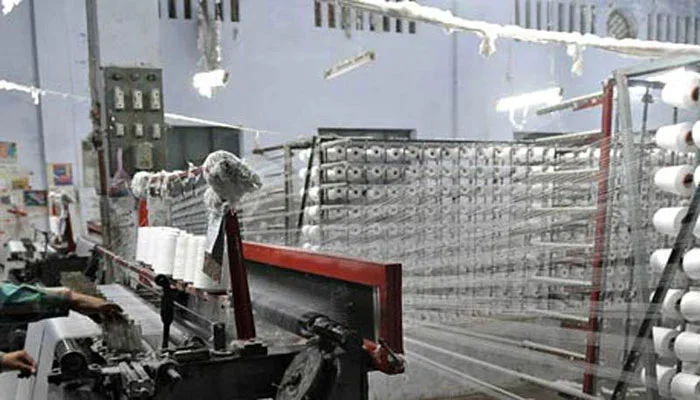- Nishat Chunian says it would suspend operations at nearly one-fourth of its spindles.
- Says will restart spindles as soon as market conditions improve.
- Textile manufacturer latest to announce suspension of operations.
KARACHI: One of Pakistan’s largest textile companies Nishat Chunian Limited (NCL) has announced a partial shutdown of operations from next month due to the current market conditions, reported The News on Thursday.
In a statement to the Pakistan Stock Exchange (PSX), the textile manufacturer informed that it would suspend operations at nearly one-fourth of its spindles temporarily until the market revamps.
“The company has decided to temporarily close 51,360 spindles after one month due to market conditions. However, the remaining units are operating normally. Company will restart these spindles as soon as market conditions improve,” the stock filing read.
Nishat Chunian has an installed capacity of 219,528 spindles and 2,880 rotors in its spinning division.
The textile manufacturer is the latest to announce operations suspension amid a prevailing economic downtrend in the country. Earlier this month, Kohinoor Spinning Mills Limited (KOSM) also announced the suspension of its operations giving multiple reasons.
“Due to prevailing global and economic downturn, overdue plant maintenance, high cost of production and low price and demand, it is not feasible to operate the production facility,” the KOSM said in a statement.
Pakistan has been facing multiple challenges, including low foreign exchange reserves, lack of foreign inflows, rising debt, energy shortages, and political uncertainty affecting the country’s economy, which is collectively pushing many companies to limit or shut down their operations.
Others companies that have recently announced the suspension of their operations include Indus Motor Company, Pak Suzuki Motor Company Ltd, Bolan Castings Limited and Baluchistan Wheels Ltd. Millat Tractors Limited has also been observing non-production days on Fridays since December 16.
Curbs by the government to reduce the size of its import bill have severely affected the export sector, especially textiles, which hold the lion’s share in the country’s exports. Delays in rebate and rising inflation have also contributed to a decline in Pakistan’s exports in recent months.
In November, the textile exports were down by 19% year on year. The country’s big manufacturing industries, including food, textile, petroleum oil, pharmaceutical and automobiles also reported a drop of 7.75% in October 2022, compared to the same month last year.
Last week, the All-Pakistan Textile Mills Association (APTMA) warned that the country’s textile exports could fall below $1 billion a month from 2023 onwards, seeking government intervention to save the sector from destruction.
“Across the country, the textile industry is currently using less than 50% of its capacity. If corrective action is not done quickly, a very significant number of jobs have already been lost and many more will do so,” APTMA said in a letter written to Prime Minister Shehbaz Sharif.
Pakistan Hosiery Manufacturers and Exporters Association (PHMEA) also expressed serious concerns over a declining trend in textile exports in a statement last month.
The textile exports had dropped by 1.34% to $5.941 billion during the first four months of July-Oct in the current fiscal year, against $6.021 billion in the same period of last year, the association said.

 Entertainment2 days ago
Entertainment2 days ago
 Latest News1 day ago
Latest News1 day ago
 Latest News1 day ago
Latest News1 day ago
 Latest News1 day ago
Latest News1 day ago
 Latest News1 day ago
Latest News1 day ago
 Entertainment2 days ago
Entertainment2 days ago
 Latest News1 day ago
Latest News1 day ago
 Latest News1 day ago
Latest News1 day ago
























